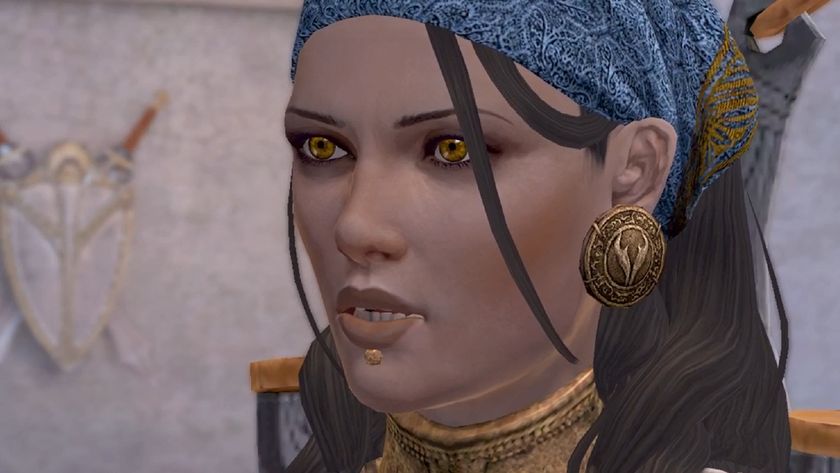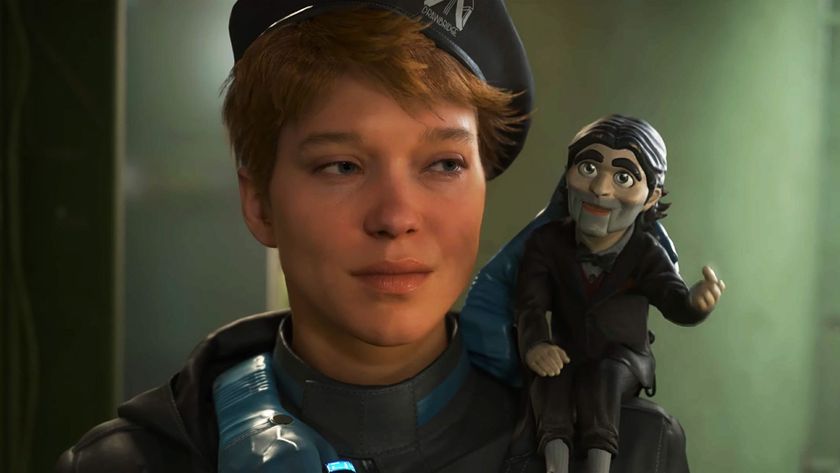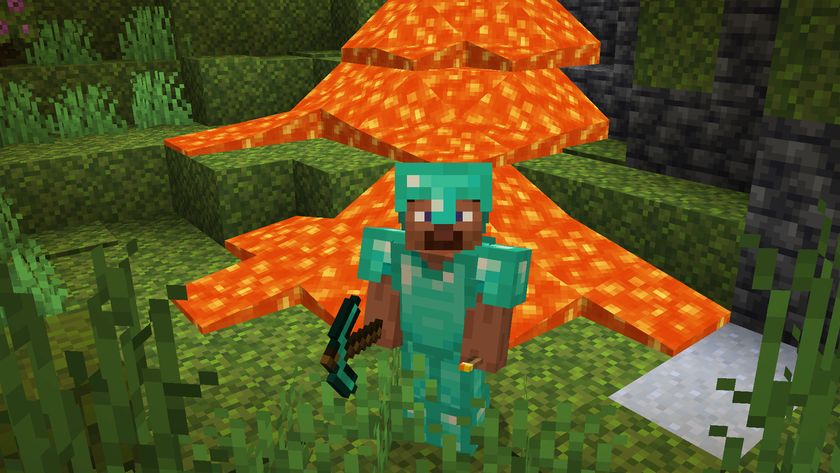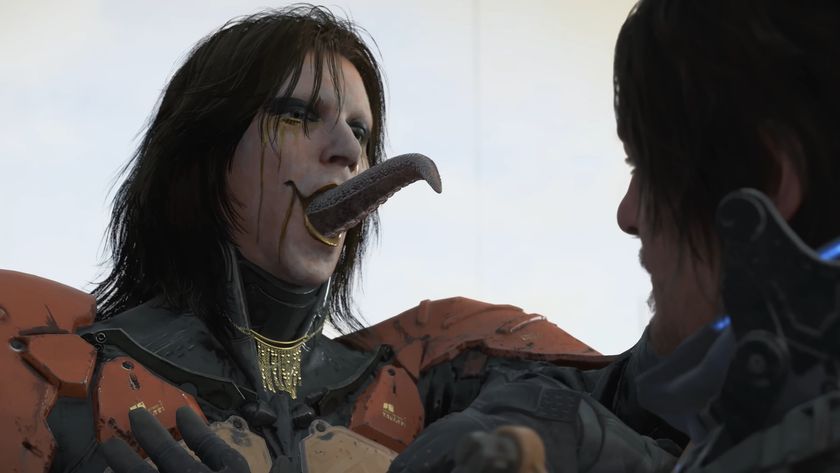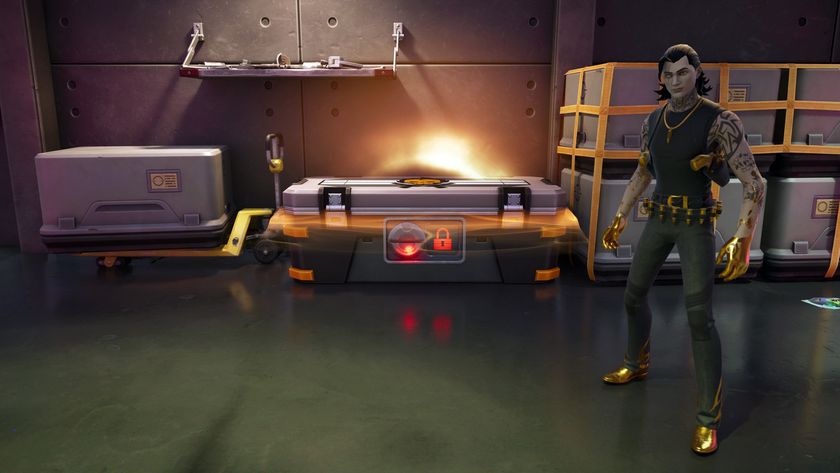F*cking around and oppressing the gingers: Peter Molyneux talks Godus
My Gamescom meeting with Peter Molyneux was a rather different experience to the one I was expecting. The last time I spoke to him--just before the release of 2008’s Fable II--he was resolutely in the mode of smooth-talking brand ambassador. Warm and welcoming, certainly, but with a notable degree of the now notorious Molyneux bluster. He was reining it in a bit--this or course was the year of The Great Acorn Apology--but there was still a slight fizz of on-message hyperbole in his grandstanding talk of mouldable game-worlds and the groundbreaking emotional importance of computerised dogs.
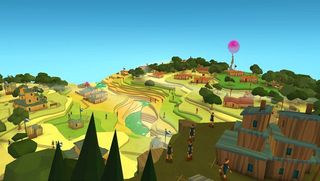
Meeting him to talk about Godus, his first independent project in seven years, I expected similar. What I got instead was simply Peter Molyneux, a man who develops games, enthusiastically but realistically talking about a game he is developing. Compared to the mega-ton, self-appointedly pioneering Fable franchise, Godus is a relatively modest project, unashamedly based upon the same ‘God Game’ DNA as Molyneux’s 1989 hit Populous. It wasn’t even shown off at the Gamescom show proper.
After an apology for dragging me over to his hotel room down the road from the convention centre, we huddle around a laptop on the coffee table and started tinkering with the game. And then we get talking about why a developer often so vocally bent on innovation is going back to his roots.
I venture that that must be like having someone insult your children.
“Well it is. And that kind of led me to leave Microsoft and start on this crazy adventure”
That adventure started, like many recent quests into gaming’s nostalgic past, with crowdfunding on Kickstarter. To variable degrees of controversy, Kickstarter is increasingly becoming the de facto home for stalwart developers launching throwback projects. But surely it’s hard to balance the delivery of old-school authenticity with modern freshness, particularly when the fanbase is invested financially as well as emotionally.
“Exactly. That’s right. It is so tempting to re-do something, and to be honest with you, there is enormous pressure in doing Kickstarter. Normally you can go away in your little ivory tower, and you can just fuck around for six months, and just faff around with tools and stuff. But with this, I think it was five days after we got our Kickstarter that the pledgers said ‘Where’s the update?’”
Sign up to the 12DOVE Newsletter
Weekly digests, tales from the communities you love, and more
Fortunately for all concerned, the development of Godus has been a quick one. The game went into full production in November 2012 and is now set for Steam Early Access release on the 13th of September this year. Ostensibly a modern evolution of the traditional God Game rather than an outright revolution (Molyneux describes it as “what that original Populous was, but multiplied by a thousand”), Godus appears to be a game made up of many intricate, interlocking, online-enabled systems but dominated by no one innovation in particular.
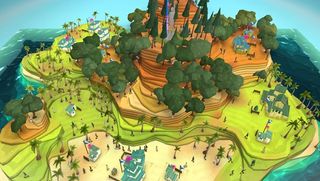
It looks a deep, accessible game, certainly, but unusually--in fact refreshingly--the presentation lacks the showboating concept-pitch that usually accompanies a new Molyneux game. So what, after so many years of interface-reducing, emotion-heightening, morally-confounding Big Ideas, is driving Molyneux’s creativity this time? It seems the answer is simply the way that a modern context can accelerate his old ideas.
“I’m super-excited about the kind of technology that’s going on. I mean this is all powered by the Cloud. All these Homeworlds that you’re creating are actually connected. If we look over here we can see that this is another person’s Homeworld just encroaching on mine. They won’t be naturally aggressive, and you can slow that down by sculpting [the world’s terrain], but the idea is that we’ve got all these Homeworlds connected by the Cloud.
“His reign lasts for six months, and then he’ll be challenged by other people who play, and if they win a multiplayer match against him they’ll then become the God of Gods. It’s absolutely amazing and fascinating to be a games designer and use all this technology, it’s just incredible”
